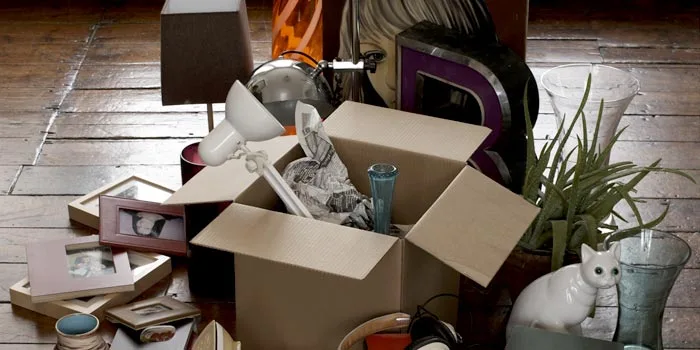5 Simple Steps for a Home Inventory


You know how much you paid for that new TV; same for your computer. But what about those plastic bins of toys you keep under the stairs? Your collection of antique china? That expensive woodworking equipment? You might have already taken stock of the big things, but in an emergency, could you do a mental household inventory list and name all your valuables? That’s why it’s important to do a home inventory. For peace of mind, and for insurance purposes, a home inventory is just a smart move. It can help you decide how much and what type of homeowners insurance to buy, speed up the claims process, and help verify losses for your income tax return. Where do you start? Read on!
Step OneFirst of all, you’ll need to get organized. You’ll want to document things like the contents of your tool boxes and closets. Tidy up; it’s easier to see what you have if your possessions aren’t in piles on the floor of your closet or crumpled up in a junk drawer.
Step Two
Before you start making your home inventory list, plan your starting point. Map your course through your household and move room to room methodically. By plotting your course in advance, you’re saving yourself time and also decreasing your chances of missing important inventory items. For an insurance home inventory, remember to include your attic, garage, and even detached structures (like your tool shed).
Step Three
How you document your household inventory is important. Photography is your friend; go from room to room, taking pictures (or even video, provided you narrate!) as you go. Make special note of your most valuable items (jewelry, antiques, electronics) and where you keep them. Our Home Inventory is a helpful tool for noting quantity and original cost. It’s also helpful to keep receipts and to note the serial numbers for your gadgets.
Furnishings (bookcases, cabinets, couches, tables, drapes, lamps)
Appliances (stove, washer/dryer, hair dryer, scale, vacuum)
Electronics (Flash drives, gaming systems, tablets, chargers, computers, DVD collection)
Lawn and Garden (patio furniture, lawn mower, snow blower, hoses, bikes)
Antiques and Collectibles (baseball cards, dolls, signage, toys, stamps, coins, art)
Provide a general description of the inventory item
List the quantity of those items
Note the date each item was purchased
Specify how much you paid for each item on your inventory list
Step Four
You’ll be tempted to keep the inventory list in your home, but that’s definitely not the safest place. Create a private album on an online site like Flickr or on the Cloud, and label it “Home Inventory”. Print your inventory and keep it in a safety deposit box. Whatever you do, don’t keep your only record of your possessions on your property!
Step Five
Whenever you make a big purchase, or even just every couple of years, reevaluate. This is also a good excuse to de-clutter as you go. Remember, an out-of-date home inventory could hold up the claims process at a time when that’s the last thing you need.
With a wide range of insurance products and services to choose from, Farm Bureau Financial Services offers coverage that is comprehensive and customizable. To learn how you can protect your possessions and the other things that matter, contact a Farm Bureau agent today!